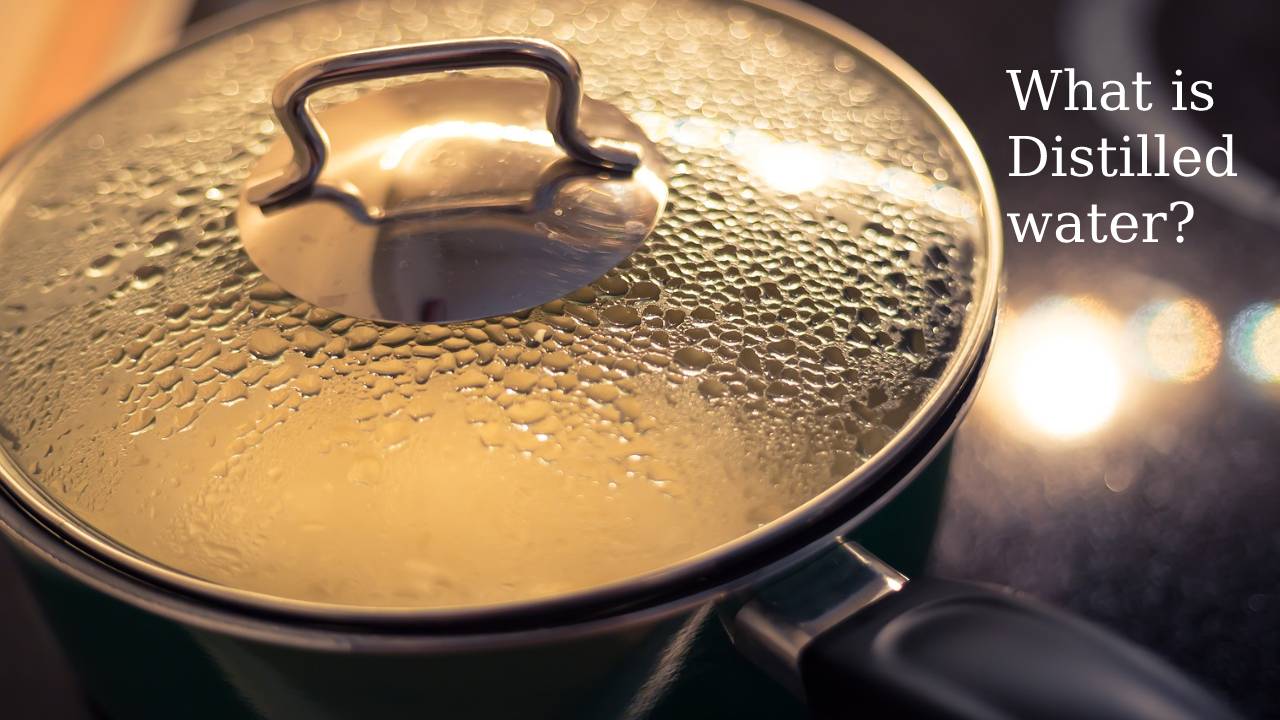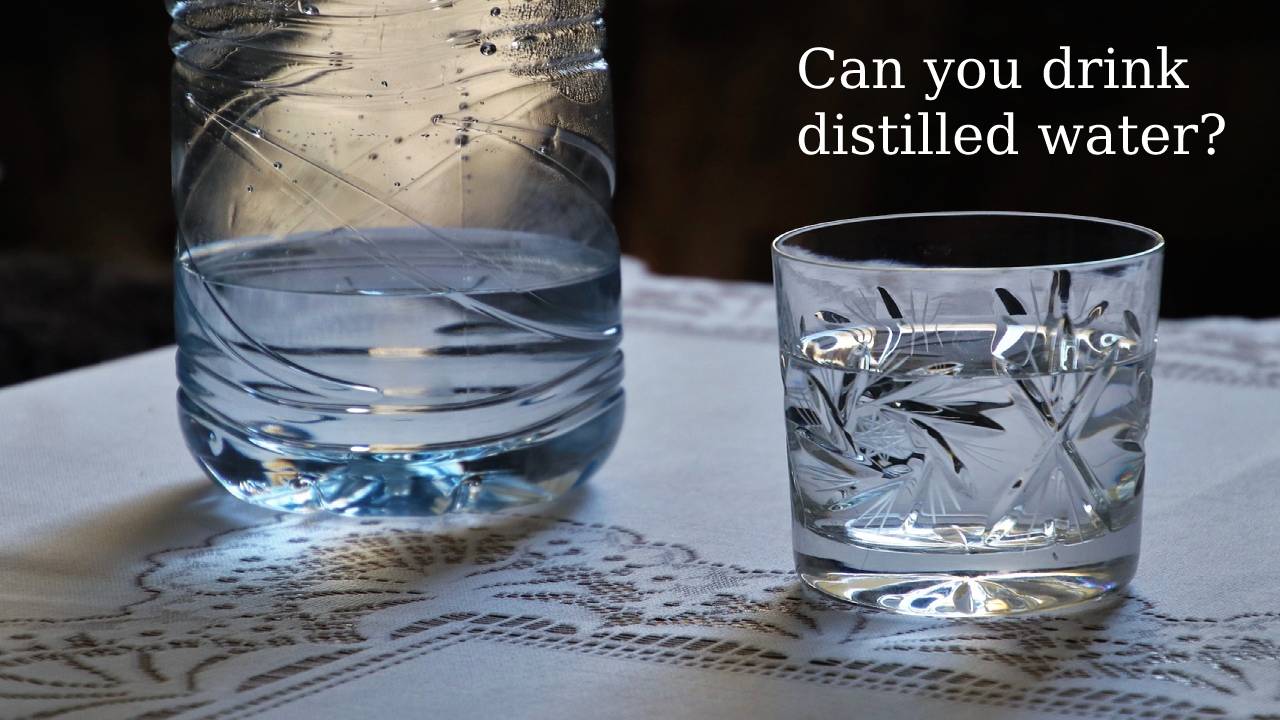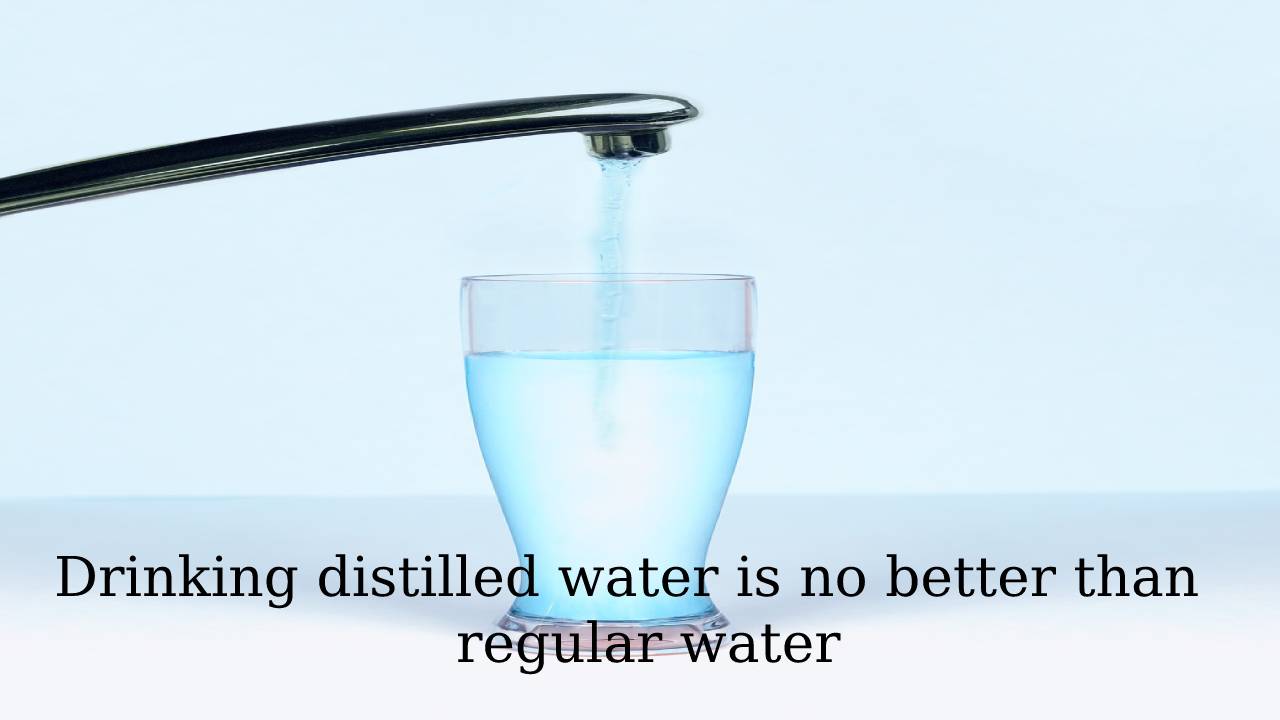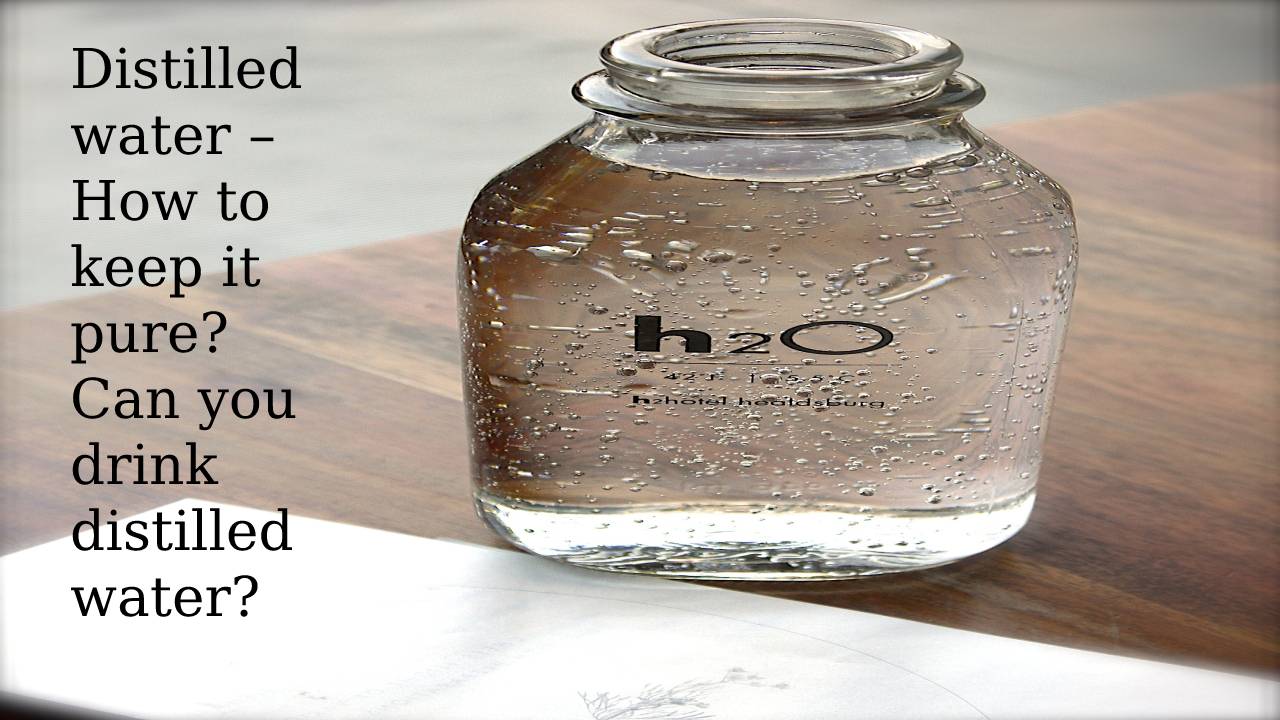Table of Contents
What is Distilled water?
Distilled water is pure water chemically called H20, which is condensed water.
Distillation is a chemical process. Liquids first evaporate and then condense again – this is how they are cleaned. When you distill normal household water, you remove ions, trace elements, and dirt from it. In the end, you get chemically pure H2O.
Distilled water is used as a household item or in industry. You can use it for cleaning, for example, or as a filler for humidifiers or irons.
The advantage of distilled water is that it no longer contains lime. As a result, it does not leave any lime stains on surfaces after cleaning, for example. Also, electrical appliances like the iron won’t scale as quickly if you fill them with distilled water.
Distillation is the process of heating normal tap water so that water vapor is produced. This water vapor then condenses on a colder surface, and you collect it as distilled water in a new vessel.

How to keep it pure?
- To keep it clean, always store the water in a sterile container.
- Remember also to sterilize lids and lids. If you use a funnel to fill the water in your containers, keep in mind that the horn must also be fixed.
- Distilled water can generally be kept indefinitely. Be sure to keep containers airtight to protect water from contamination.
Can you drink distilled water?
- We can say that distilled water is the purest there can be, as it is nothing more than H2O without any other substance.
- It is said that it could be called empty water, as it is free of minerals, metals, and different types
of material. - It can be of great help to our body since it does not have any other substance.
- Being pure, H2O eliminates toxins and other substances that are damaging our body and is undoubtedly good for health.
- If you wonder about the difference between drinking water and distilled water, it is simple.
- Drinking water has substances such as sodium and chlorine, which are not harmful to health, necessary for it to be drinkable. Instead, water distilled is pure H2O.
- You can drink it without hesitation.
- However, the science magazine Spektrum points out that it can upset the body’s electrolyte balance – especially in people who eat one-sidedly because the water no longer contains any minerals.
- It is, therefore, safe to drink it now and then. For daily consumption, however, you should instead use tap water.
- Use your homemade distilled water for cleaning and ironing.

What happens if a person drinks it?
- In contrast to these pseudo-therapists, other people claim that it is harmful for human consumption due to its acidity degree.
- And because its lack of salts can induce anemia and ionic imbalances. Some people even believe that I could make explode the cells of our body.
- The distilled water and the water jet hypotonic compared to the blood.
- Suppose the red blood cell is immersed in a solution that has an osmolarity less than 0.32.
- In that case, water enters the red blood cell, causing it to swell (turgor) and break if the water entering is
considerable (hemolysis process).
Distilled water is not toxic but not beneficial for your health
- It is the purest we can find. So pure that it hurts. Or quite the opposite, it is very healthy it all depends on who you ask.
- The most widespread myth is that it is toxic, undrinkable, and capable of causing death.
- However, neither so much good nor so bad, the reality of drinking it is quite bland because it does not produce any extraordinary consequences in our bodies.
- For practical purposes, almost all the water we consume is “distilled” for our bloodstream.
- There is not a single serious scientific study that supports the fear of its consumption.
Drinking distilled water is no better than regular water
- Some voices, associated with pseudo-therapies, happily claim that drinking distilled water is better for health because it is more “pure.”
- Many water purifiers are sold and, also, home distillers that produce pure water for their consumption.
- Not a single piece of evidence that this is positive in any case.
- It also has no explanation since there are not too many reasons to defend hypotonic water (with low salt concentrations) except for specific medical claims.
- Here are also no studies that defend the myth that it is bad for consumption.
- The case of demineralization and distillation of water has been studied to use it in places where this resource cannot be accessed.
- The results have been exact: there are no known risks, and those that could exist are not at all clear.
- It seems to support the hypothesis that it is not a danger (it does not provide any benefit).
- So, the next time we are in front of a distilled water flask, looking at it with a suspicious face, or we have taken to the fashion of drinking.
- Things “purer,” and with fewer chemicals, it is good to stop thinking about that reason.
- Sometimes it fails us, and there are other explanations behind an idea, and that water is just that, water.

Also Read: CELEBRATING 10 YEARS OF ALTA MODA


